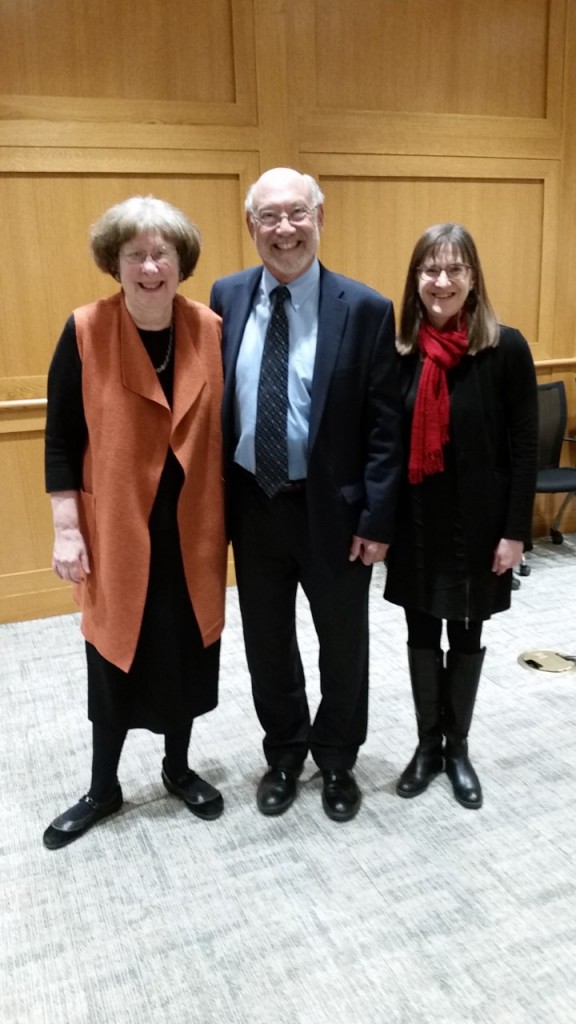David Berry Visits Rochester
by Sara Kowalski, Class of 2017, Humanities Fellow
Last month, National Humanities Medalist and University of Rochester alumnus David Berry gave a guest lecture at the Humanities Center titled “Humanities Against All Odds.” Berry gave an overview of the history of the National Endowment for the Humanities (NEH) and the National Endowment for the Arts (NEA), which were instated in 1965 by President Lyndon Johnson. Back then, the existence of the NEA/NEH was about “correcting a balance” and giving the humanities some much-needed support.
However, over the years, the NEA/NEH have met many challenges, as politicians have begun to question the value of the humanities and arts and, more specifically, whether they should receive federal funding. In the 1970s, politicians and the general public began to promote “vocationalism” in secondary education institutions, especially community colleges. In 1981, the “humanities crisis” began, with a big cut to the NEG/NEA budgets. In 1994, certain politicians began calling for the elimination of the NEA/NEH altogether. Although it wasn’t eliminated, it took a 40% cut that we still haven’t recovered from over twenty years later.
Despite all of this, Berry emphasized the powerful response that rose up from the general public to defend the humanities. Organizations like the Community College Humanities Association (CCHA) and the National Humanities Alliance (NHA) (of which Rochester is a member!) were founded. Humanities Advocacy Day was instated in Capitol Hill, a special day for lobbying congresspeople on behalf of arts and humanities. Best of all, immediately after the 1995 cut, a grassroots movement sprouted around the country. Many regular citizens took “direct action” by mailing and calling their representatives.
Berry promoted advocacy, explaining how everyone—students and faculty—can do their part to make sure the NEA/NEH are protected. This includes signing petitions, calling, emailing, and sending letters to your congresspeople, going to Washington in March of Humanities Advocacy Day, and visiting the offices of your representatives and congresspeople at least once a year. Students should reach out to the congresspeople of their home state and their school state. In the modern age, “silence is not acceptable anymore.” Many politicians don’t quite understand what the humanities are or what research in the humanities looks like. That is why students must explain it to them, and show off the amazing projects they are currently doing!

